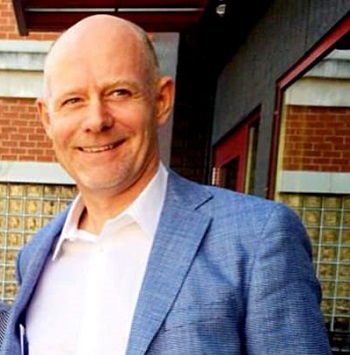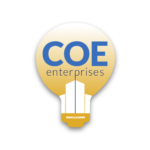

Bio
Michael J. Darby is Founder & CEO of Monument Realty, a leading privately held mixed use real estate development & operating company headquartered in Washington DC.
An active member of the Washington, DC region’s development industry for more than two decades, Michael previously worked with some of the most prominent developers in the Washington DC area including Carr America in the 80’s and Akridge in the 90’s. During those years he managed the development of many prominent Washington buildings including such landmark restoration projects as the Willard Hotel, the Southern Railway Building and the Victor Building.
Michael began his career in his native Australia, working with a Melbourne-based general contractor, and holds a degree in Engineering and Business from the University of Melbourne. He has been active in numerous regional real estate organizations over the years and has served on the Board of the DC Building Industry Association.
Michael is involved with several charities and his company have been longtime supporters of the annual Real Estate Games, a charitable sports competition that supports the Juvenile Diabetes Research Foundation (JDRF), and he was the event co-chair for six years.
Show Notes
Current Role
- CEO and Founder at Monument Realty. Role has changed over the years since founding 22 years ago (3:15)
- Brief history overview of company
- Started with Partner (Jeff Neal) (3:31)
- Chased deals with Lehman Bros. and Apollo
- Bankruptcy of Lehman Brothers and breakup of partnership with Jeff Neal (4:00)
- Role now is broader (5:00)
- Experience is well earned (5;30)
Origins
- Born and raised in Melbourne, Australia (6:20)
- Father was an engineer (6:30)
- Competed in freestyle skiing as a youth (7:15)
- Went to Europe and competed (7:35)
- Came to the US during Australian summers (winter here) to ski competitively (8:00)
- Australian mountains (8:50)
- Not as “advanced” as Europe and North America
- Walked up hills frequently (10:30)
- Traveling was fun around the world (11:45)
- Athletics is encouraged in Australia (12:15)
Education
- University of Melbourne (13:00)
- Studied engineering that led to real estate career (13:10)
- Interned at Charles H. Tompkins Construction in DC
- Came to US via LA originally and bought a car on the beach (16:30)
- Toured country and eventually came to DC (17:20)
- Interviewed with Charles Tompkins Construction and was hired as a Project Manager (17:30)
- Tells story about a perception about Monument not giving them business as a result of not getting a raise when asked (18:30)
- Liked working in DC- Worked on IMF Building, 1333 H St. NW and other projects in that one year period (20:00)
- Returned to Australia in 1981, but returned to US due to a female relationship he had when in DC (20:40)
- Story about his relationship that was delayed and he split with her and had to get a job during his visa period (21:20)
Career Arc
- Joined the Oliver T. Carr Company to assist with the Willard Hotel project renovation (23:00)
- Story about his visa process in Canada (23:50)
- It was rejected during his first try- his attorney was surprised (25:45)
- Senior official at the Carr Company finagled his approval for his visa (27:00)
- Willard Hotel was his first major project (29:40)
- Involved in several other office buildings
- Bought a large parcel of land (240 acre farm) in late 1980s (30:00)
- Designed a golf course and found a partner
- Property performed well until market was saturated
- Left OT Carr in early 1990s (30:30)
- Learned quite a bit at Carr (33:58)
- Doesn’t “sign” on financing as a result of his experience there (34:15)
- “Aha” moment- spreadsheet learning in pro-forma impact (34:35)
- Construction is the most important part of development in his mind (35:30)
- Analogy of financing being fuel (37:00)
- Joined Akridge Company with Jeff Neal who was his cohort at OT Carr (38:25)
- Came in as a Partner in the early 1990s with Jeff and Chip Akridge (39:30)
- Not as prolific as the Carr Company
- Brought considerable transactions in and arranged a relationship with Apollo to develop projects in the mid 1990s (40:30)
- Started Monument with Apollo as capital partner in 1998 (41:20)
- Great run with Apollo (43:30)
- Worldgate
- Winstar
- 901 NY Ave.- Sold site to Boston Properties to help relationship with Apollo and had their capital returned to them (44:00)
- Brought 2M s.f. of development opportunities from Akridge to start company (45:00)
- Promote structure advantageous after sale of 901 NY Ave.
- Bill Scully was relationship at Apollo (46:45)
- Apollo recognized Monument’s expertise in the market and the relationship was such that they were given latitude in decision making (47:50)
- Apollo had the large deal in NY with Related (Time Warner) in 2002 that took them out of the new business market (49:40)
- Monument then looked to Lehman Brothers to fund new business (50:30)
- Dave Ridini was their contact (50:35)
- Started with a JV on several downtown office buildings
- Franklin Square North (with Prudential)
- Went on to do construction loans with Lehman Brothers
- Had portfolio value with Lehman Brothers of $2.6B at the time of Lehman’s bankruptcy (53:00)
- Looked carefully at opportunities to see whether the returns were significant to pursue them (54:30)
- Great run with Apollo (43:30)
- Philosophy of developing to a multiple instead of holding (56:15)
- Believes that he is not the “end user” or owner (56:50)
- Merchant building (58:35)
- Buy, build, sell (58:50)
- Case study (1:00:00)
- Leverage
- 2008 Lehman bankruptcy (1:01:10)
- Manage the downside as actively as the upside (1:03:00)
- Non recourse loans (1:03:25)
- Need “significant” equity in transactions (1:03:45)
- Negotiate construction contracts carefully (1:04:20)
- Wants bankruptcy provision from investors if he provides for it (1:05:00)
- Calls from banks worldwide that they were now their lenders after the bankruptcy (1:07:45)
- Sued by these new lenders to make them whole, but Lehman had sold their paper and the understanding was not there (1:08:45)
- Eventually the loans were made whole (1:10:45)
- Foreclosures occurred due to Lehman not funding (1:11:00)
- Monument kept its key people to restart transactions quickly (1:11:45)
- No bankruptcies of entities, but a couple foreclosures (1:13:00)
- Learned considerably from mistakes and growth (1:15:00)
- Know when to take money off the table (1:15:50)
- Case Study with Ballpark transaction (1:16:40)
- Differentiators
- “Smart” investments (1:17:40)
- Time is critical to choose projects (1:19:00)
- Wants to “make as much as possible” as quickly as possible (1:20:45)
- Hedging to seeing a promote from the start
- Look carefully at space utilization (1:21:00)
- Elevator and security questions (1:23:00)
- Pandemic impact
- Doesn’t believe that working remotely at home is as efficient as office use (1:24:00)
- Space allocation will change back to separate offices (1:25:00)
- Reasonable spacing and partitioning necessary (1:26:00)
- Believes in teamwork in office environment (1:27:00)
- Hotels may be safe going forward (1:30:00)
- Believes human nature will bring people back together (1:31:30)
- Believes retail will not be affected as much as others (1:34:00)
- Monument team (1:36:30)
- Focused on keeping key employees even during tough times (1:37:00)
- Not regimented and give employees latitude (1:38:45)
- Social culture (1:39:20)
- Added a younger base of employees (1:40:30)
- Finding the right financial partners is critical (1:41:15)
- Believes Monument is the “scarce commodity” (1:42:20)
Inspirations
- Willard project helped him grow quickly
- Cites story about Intercontinental Hotels (1:46:00)
- Bill Scully of Apollo (1:47:20)
- Dave Ridini of Lehman Brothers (1:47:40)
- Learned how not to think (1:49:45)
Priorities & Lessons Learned
- Monument is first (1:50:30)
- Family is next (1:51:15)
- Leave company to others when he decides (1:52:20)
- Most surprising events (1:54:15)
- Breakup with Jeff Neal (1:54:30)
- Lehman bankruptcy (1:54:50)
- Spec office buildings leasing quickly (1:57:00)
- E-Trade Case- Air Rights in Ballston Mall (1:57:50)
- Forest City built building with a Monument takeout while Monument pre-leased it to E-Trade
- Restoration of stairwell
- Advice to 25 yr. old self
- Pick career carefully- real estate may be too “controlled” today (2:01:45)
- Mindset to deal with guarantees and other risks (2:02:50)
- Start with knowledge (2:03:20)
- Minimize mistakes (2:03:30)
- Billboard- “Stop fighting and learn to get along” (2:04:15)
Postscript
- Lehman Brothers’ bankruptcy statistics (2:06:30)
- $50B per month investment prior to bankruptcy filing
- Equity position 30 times greater than capital
- Today’s banks are doubled in less leverage than Lehman Brothers

